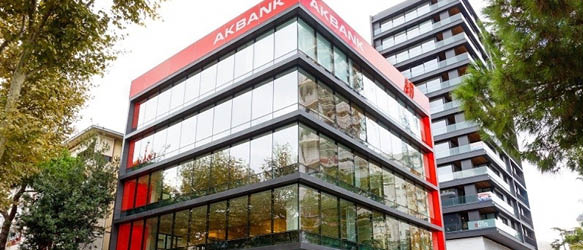After a decade of economic challenges, Greece’s real estate market is thriving, fueled by a tourism boom and strong foreign investment. With property prices still below pre-crisis levels and a growing focus on sustainability, PPT Legal Partner Alexandra Mitsokali and Moussas & Partners Senior Partner Loukia Papachatzi explore the sector’s revival.
Strong Momentum
“The real estate market is one of the most dynamic sectors of the Greek economy,” Mitsokali says. “The dynamics of the domestic real estate market were hit hard by the reversal of economic activity during the 10-year financial crisis that started in 2010. However, in the past few years, serious conditions for the recovery of Greek real estate have emerged.” The latest figures reflect this positive trend. “Indicatively, in 2024, according to official data, the total volume of transactions concerning real estate exceeded EUR 23 billion, which means the real estate market is starting to show strong momentum.”
Papachatzi agrees that growth is continuing, though at a steadier pace. She highlights that property prices are steadily increasing, “although at a more moderate pace compared to previous years, amidst continuous increases in property demands. Residential property prices saw a 9.3% increase in the first nine months of 2024, reflecting sustained interest, especially in Athens (+8.8%) and Thessaloniki (+12.5%).”
Location, Location, Location – And Some Incentives
The Greek real estate market “presents a unique blend of cultural allure, strategic location, and investment potential that makes it an attractive option for savvy investors,” Papachatzi notes, outlining key drivers of growth.
Both Papachatzi and Mitsokali emphasize that affordability remains a major factor. “Despite the nearly seven years of uninterrupted growth, Greek house prices remain relatively lower than most European countries – attracting many foreign investors into the country,” Papachatzi notes. Property prices in Greece “have not fully recovered compared to the levels recorded before the financial crisis, making them of the lowest in the EU,” Mitsokali agrees. “While in 2014-2017 property prices in the Eurozone were increasing, in Greece they continued to follow a downward trajectory, in parallel with the decline in demand and economic activity in the country. Thus, they are still at a lower level compared to the Eurozone, attracting investors.”
Economic growth has also played a crucial role in driving real estate demand. Mitsokali highlights “the positive economic growth rate in Greece since 2018, which, over the last three years, has been significantly higher than the European average and is expected to continue to grow at a rate higher over the next two years.” Papachatzi echoes this, noting that “with diverse offerings from island resorts to urban developments, it emerged as a prime Mediterranean investment destination, experiencing widespread growth. The Greek economy achieved a GDP growth of approximately 2.1% in 2024, with projections of 2.3% in 2025 and 2.2% in 2026, consistently exceeding its long-term growth potential.”
Tourism has further fueled real estate activity. “The real estate market is developing due to tourist arrivals and income, which have reached historic highs in recent years,” Mitsokali continues. At the same time, policy incentives have played a part as well. According to her, “the implementation of the Golden Visa program has provided incentives for third-country nationals to acquire real estate in Greece, significantly promoting Foreign Direct Investment in our country.”
Looking ahead, sustainability is becoming an increasingly important factor in real estate investment. Papachatzi points out that “as global real estate trends shift toward sustainability, Greece is emerging as a leader in environmentally responsible construction. Key initiatives include the integration of renewable energy, water conservation systems, and the use of sustainable building materials. These efforts not only reduce environmental impact but also enhance the long-term value of investments.”
Megaprojects
As for the major projects, Mitsokali and Papachatzi highlight the developments taking place in Athens, Thessaloniki, and the Greek islands. The most important of these projects, according to Mitsokali, is “the Hellinikon Project at the south coast of Athens, which has been described as the largest ongoing development project in Europe. The project includes an ambitious residential project including homes, high-end hotels, large, luxury shopping centers, and the tallest ‘green’ skyscraper, the Riviera Tower.” Papachatzi adds that “located on the site of the former Airport in Athens, this ambitious development project aims to transform the area into a vibrant urban hub.”
Papachatzi also draws attention to two other projects in Athens. “Aenaon Metropolitan Park, scheduled to open in 2028 in the south area of Athens, is set to become a major recreational destination, and it is expected to welcome over four million visitors every year. The 570-acre park will feature coastal trails, sports facilities, a marina, open-air cinemas, and repurposed Olympic venues. Designed with environmental sustainability in mind, the park will include 4,000 trees.” Another one, according to her, is “the redevelopment of Hilton hotel in Athens into a world-class luxury hospitality and residential destination demonstrates Greece’s attractiveness to global investors.”
Turning to Thessaloniki, Mitsokali highlights infrastructure projects “with the metro baseline being handed over.” This, “in combination with the ongoing Flyover project, which is the elevated open regional boulevard project, will contribute to the upgrading of the Eastern Inner Regional Thessaloniki and is expected to strengthen the market even more,” she notes. Finally, Mitsokali points to the significant impact of tourism on the Greek islands. “We should not forget the strong growth in tourism over the last two years that has led to major rearrangements on the Greek islands, which are also peak destinations. Cyclades, Dodecanese, and Crete are the focus of interest for French, German, and American tourists, many of which use properties in the abovementioned islands not only as an investment but also as a second home.”
What Are Investors Looking At?
In terms of investments, “interest is mainly focused on commercial real estate, with capital mainly directed to the tourism sector (hotels, Airbnb, etc.), commercial warehouses close to the center and suburbs of Athens, and office space with modern bioclimatic features,” Mitsokali says.
Investors’ interest varies “from traditional homes and luxury villas to vacation properties and commercial developments,” Papachatzi adds. “According to a recent report of the Bank of Greece, investment interest in commercial real estate remains strong, with capital in the first half of 2024 being directed mainly to the tourism sector, commercial warehouses, and office space with modern bioclimatic features. In the mid-term, the sectors with the highest growth potential remain residential properties, commercial warehouses near the center and suburbs of Athens, data centers, high-end tourist facilities, and offices with bioclimatic design.”
The Other Side of the Boom
Despite the market’s strong appeal, several challenges remain. Papachatzi says that “challenges stem from geopolitical instability, high energy and raw material costs, tourism trends, and climate change, which may lead to stricter regulations and higher compliance costs.”
For Greek residents, taxation is a significant concern. “One of the most important problems of the Greek real estate market for Greek residents is the over-taxation that has existed in recent years,” Mitsokali says. “This in no way helps individuals who are considering buying a home for personal use. Without a change in tax policy toward real estate, the recovery of the market will only be occasional and will be purely influenced by the direction of tourism.” Papachatzi shares a similar view, saying that “the surge in short-term rentals (e.g., Airbnb) is driving up rental prices, especially in urban areas,” and that “housing shortages and rising property prices might reduce accessibility for local buyers.”
Beyond taxation and affordability, the availability of high-end properties presents another challenge. Mitsokali highlights that “the properties that are currently available are of a specification that does not satisfy foreign investors who often seek ultra-luxury properties with facilities not found in an average residential Greek home.”
This article was originally published in Issue 12.2 of the CEE Legal Matters Magazine. If you would like to receive a hard copy of the magazine, you can subscribe here.

















